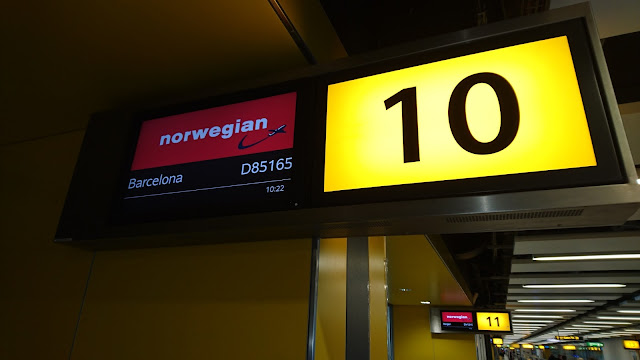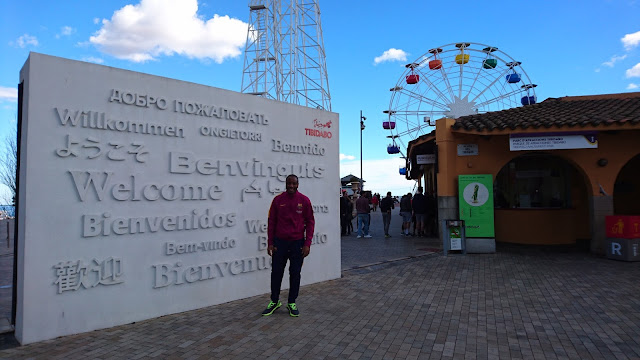“To
two men living the same number of years, the world always provides the same sum
of experiences. It is up to us to be conscious of them” – Albert Camus.
by Kudakwashe Kanhutu
In
which I relate the exact nature of my fear that the next person may know more
than me.
The word Sisyphean refers to any
interminable labour where success is never attained. Life – insofar as it
always tends to end in death – is Sisyphean, but we are not going to get that
philosophical in our discussion today. The Greek myth of Sisyphus holds
that King Sisyphus of Corinth was punished by the gods “for his
self-aggrandizing craftiness and deceitfulness by being forced to roll an
immense boulder up a hill, only to watch it roll back down, repeating this
action for eternity.” King Sisyphus’s deceitfulness had even begun to affect those he had never met. For example, when he was sentenced by the gods to
detention in the underworld by Thanatos – the messenger of death – he tricked and chained
Thanatos instead. With the messenger of death so indisposed, the result on
earth was that no one would die and, with no one dying when struck, wars became difficult to win. A hue and cry was raised, and Zeus devised what can be,
correctly, termed poetic justice: “as a punishment for his trickery, King
Sisyphus was made to endlessly roll a huge boulder up a steep hill. The
maddening nature of the punishment was reserved for King Sisyphus due to
his hubristic belief that his cleverness surpassed that of Zeus
himself. Zeus accordingly displayed his own cleverness by enchanting the
boulder into rolling away from King Sisyphus before he reached the top which
ended up consigning Sisyphus to an eternity of useless efforts and unending
frustration. Thus it came to pass that pointless or interminable activities are
sometimes described as Sisyphean.”
I have found this to be the exact
nature of any determined quest for knowledge – any determined quest for
anything! Forget not that just last week when I finished reading Miguel de
Cervantes’s masterpiece – Don Quixote: The Ingenious Gentleman of La Mancha – I
proudly announced that I had finished my quest to read all of the world’s classic
works of note. Yet despite this announcement, I have just picked up Dante Alighieri’s
The Divine Comedy, this, as a
consequence of having recently visited Italy. But herein lies the rub, you
can’t read The Divine Comedy without having first read Virgil’s The Aeneid, so I have had to put Dante aside and have to read
Virgil’s Epic Poem instead. Can you picture my boulder rolling down
before it reaches the top?
My calling demands that I be
conversant with all these classic works as the people I debate with, have a
tendency of mentioning them in passing to illustrate a point in the debate. I
was at a nuclear deterrence discussion once, when someone casually remarked
that, “we run the risk, like Don Quixote, of mistaking windmills for giants, to
ever be engaged with in mortal combat.” I didn’t know who the hell Don Quixote
was or why he would mistake windmills for giants. I do now. I had also had to
read some of these works for my Classics degree, but as will become evident
below, reading to understand a work and reading to pass an exam are ever so
different. A further point is that one of my hobbies is travel and, I have made
reading the best classic works to come out of each country I am about to visit,
part of my preparations for the visit. The more countries I visit, the more I
am forced to read even more classic works. So, all these streams have met where
I stand and conspired to make my quest for knowledge quite the Sisyphean
ordeal.
What you see before you now, is
me having to read two more classic works in quick succession, this time from
Italy. I visited Rome recently and beheld the Tiber River, walked along its
banks and dipped my hand in its cool waters. This river has been a witness to
history and has been invoked by poets and singers since time immemorial. It
even has a nickname, they call it Flavus (The Blond). Standing before this
river made me realise that I didn't know anything about this epic river. It made me
remember that I had only given Virgil’s The
Aeneid a very cursory read, you see, Virgil does mention and praises the
Tiber River throughout his Epic Poem. I just did not know what importance the
people of this land had attached to the Tiber River through the ages.
When I
read The Aeneid for my Classics
exams, I only read enough to be able to build a case that Virgil’s Epic Poem
closely follows the conventions set by Homer in The Iliad and The Odyssey.
Such a reading does not require you to understand the story, it only needs you to
pick up a few cues. Here, I will not bore you much with the details of literary
study’s terms and conventions. There is something called intertextuality,
whereby authors borrow from each other in telling their stories. This
intertextuality is also the reason why I find myself having to properly read
Virgil’s The Aeneid before I can
proceed to Dante’s The Divine Comedy.
My attempt to ignore The Aeneid and just read The Divine Comedy utterly failed when I opened the first
page of The Divine Comedy. In the first Canto, Dante meets Virgil – and is full
of praise for him – as Virgil, who died before him, becomes his guide in the
underworld. There are so many references to Virgil by Dante in the first few
pages that it became futile for me to try to understand The Divine Comedy without having read The Aeneid first.
Now, I am going to Russia very
soon, who knows the number of classic works from that part of the world I will
be forced to read by my fear that the next person there may know more than me? In addition to all that, I must keep abreast
with permutations in the contemporary world of war and diplomacy.























































































































































